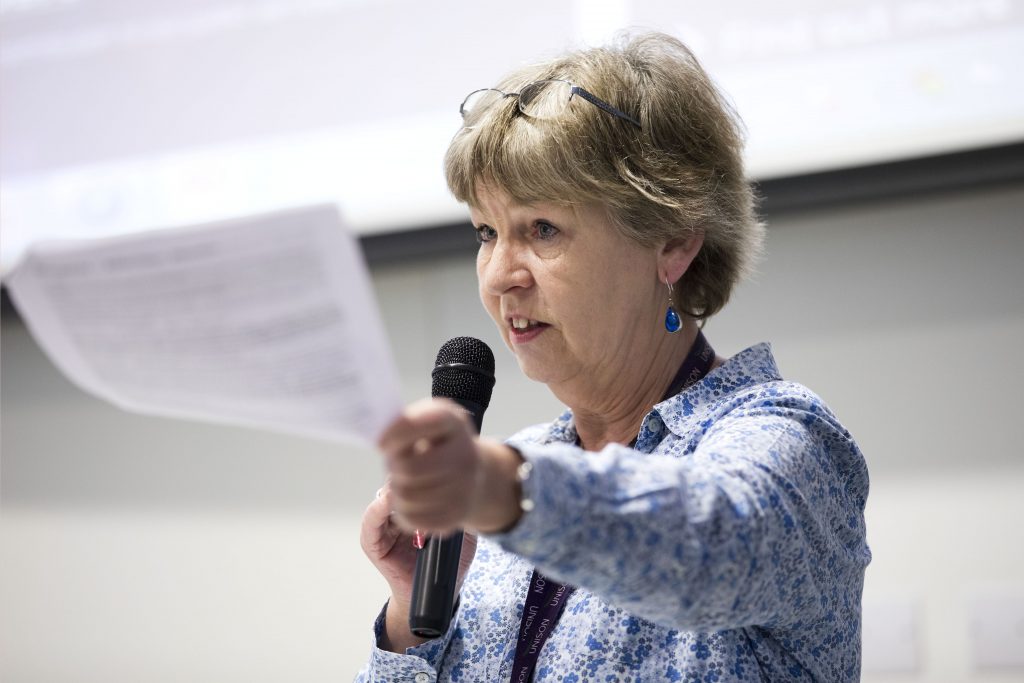
Teresa Donegan, head of UNISON Learning and Organising Services, and Jane Shepherd, national education officer, gave evidence to the Women and Equalities Committee at Parliament on Wednesday morning.
The focus of the session was on recruitment and reskilling of older workers. The panel answered questions on addressing conscious and unconscious bias in the recruitment process, the varying needs in different demographic groups, and the ease of accessing training.
Teresa and Jane spoke about the courses that UNISON offers to members to help them progress in their careers – Get That Job, Confidence Skills, Interview Skills, etc – as well as the Moving On toolkit resource and UNISON’s report Women Deserve Better. They put particular stress on the additional barriers to training and promotion that are faced by older women with caring responsibilities, and the importance of encouraging under-represented groups to apply for jobs in the first place.
Jane said, ‘We’ve run Women’s Lives for over twenty-five years now, and it’s really about developing skills for women and confidence, that they feel empowered to actually apply for whatever position they’re keen on applying for.’
They spoke about the difficulty that many older women face in taking up training opportunities.
‘More and more we hear of scenarios where there’s not the empathy or the sympathy from the employer, there’s difficulty in obtaining time off; where time off is obtained, it’s often unpaid; and, bearing in mind that many of our older women members in UNISON are low paid, that can have a significant economic impact on them,’ Teresa said.
‘We try to be very flexible in when and how we run our courses, and we’re finding more and more with older women that we’re having to make those much shorter, one or two hour sessions in the evenings or on Saturdays.’
And they talked about the importance of working with employers to ensure that the reach was as wide as possible.
‘What we do need to do is to better engage with employers – some are brilliant, many are actually hostile – because if we do things jointly with employers it’s more likely to be fed out across the workforce. Hard to reach workers, who work shifts, who work in isolated care homes, who work in schools, may not always see employer information. Actually accessing training remains a difficulty. We welcome other organisations, that the Government is investing money in, and we’re going to be working with the Open University and the WEA to look at more flexible provision, but until we can get to more of these hard to reach workers it’s going to remain an uphill battle.’
You can see the session on the Parliament website here and follow the inquiry on Twitter using the hashtag #olderworkers.
Photograph © Jess Hurd/reportdigital.co.uk
